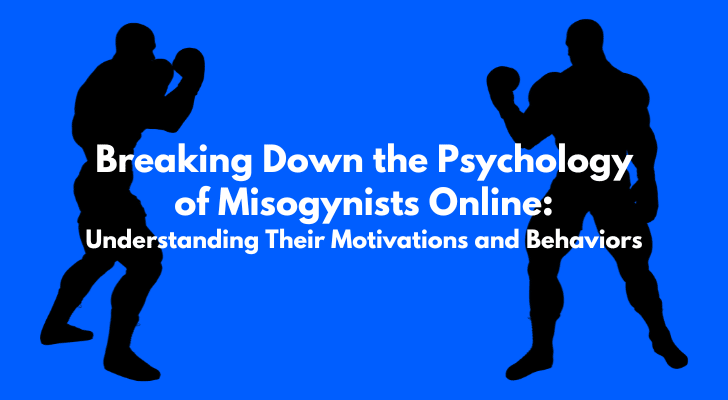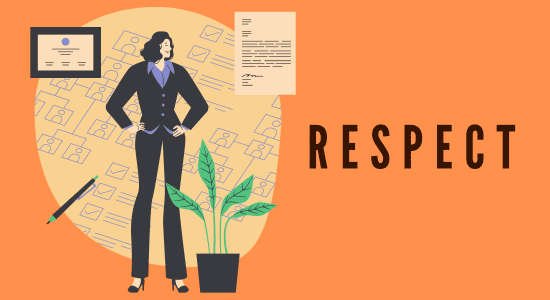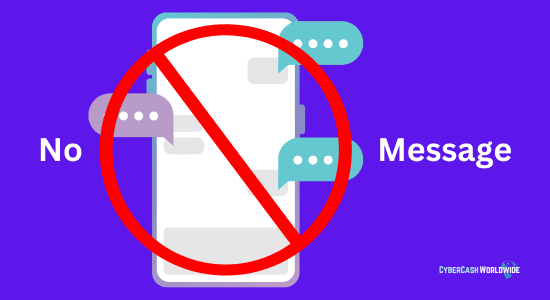If you think working conditions for women are better in this day and age, but as an online business owner, I still receive misogynistic abuses and harassment from customers from time to time. They can range from subtle and insidious remarks to outright hate speech and threats. It’s totally unacceptable.
Have you ever wondered why some people feel the need to express such hateful opinions about women? What motivates them to engage in such behavior? I will dive into the psychology of misogynists online and try to understand their motivations and behaviors, hoping to get to the bottom of it so fewer women experience what I experience online.

Did You Know?
- Approximately 70% of women report experiencing online harassment at some point, with a significant portion attributed to misogynistic attitudes. (Pew Research Center)
- In online gaming communities, nearly 65% of female players have faced gender-based harassment. (Entertainment Software Association)
- Around 55% of women aged 18-29 report being sent unsolicited sexually explicit messages online. (Pew Research Center)
- Female journalists and public figures are 27% more likely to be targeted by online abuse than their male counterparts. (Amnesty International)
- Studies suggest that up to 40% of online misogynistic comments come from accounts that display a clear male identity. (Journal of Gender Studies)
- In social media discussions, women are 25% more likely to experience sexism and harassment than men. (Women, Action, & the Media)
- Research indicates that 30% of men who exhibit online misogynistic behaviors also show signs of significant social isolation. (Cyberpsychology, Behavior, and Social Networking)
What's The Difference Between Sexism and Misogynism?
Sexism is the belief that one sex or gender is superior to another, while misogyny is a specific form of sexism which refers to prejudice and discrimination against women. Sexism can be expressed in many different ways, such as through language, images, actions and attitudes which suggest that men are naturally better than women.
Misogyny often takes this further by suggesting that women should not have certain rights or opportunities because of their gender. It may also include negative beliefs about femininity and female abilities. Both sexism and misogyny are forms of discrimination based on gender stereotypes which limit the potential for people from all genders to thrive.
What Kind Of Misogyny Harassment Or Abuses Do Female Online Marketers Receive?
We can experience a range of misogynistic harassment and abuse online just because we are women, including:
- Online harassment: This includes receiving unwanted messages, comments, and emails that are sexist, sexually explicit, or threatening in nature. This can be particularly damaging if the harassment is ongoing and persistent.
- Gender-based discrimination: Women are often not taken seriously in online discussions due to a persistent gender bias. Stereotypically in tech-related conversations, where we feel dismissed or ignored when attempting to make valid contributions. Our comments and ideas may be disregarded simply because of our gender, leaving us feeling frustrated and disrespected.
- Trolling: This involves leaving abusive or inflammatory comments on social media or other online platforms with the intention of causing upset or distress.
- Doxing: This is the act of publishing someone's private information online without their consent, to intimidate or harass the person.
- Revenge porn: This involves sharing explicit images or videos of someone without their consent, often in order to shame or humiliate them.
- Gaslighting: This is a form of psychological manipulation that involves denying a person's experiences or feelings, making them doubt their own sanity or judgment.
Any of these forms can have a huge impact on a woman's well-being and ability to do their job.
Did You Know?
- Approximately 20% of online misogynistic incidents involve direct threats of physical violence against women. (United Nations Broadband Commission)
- Over 60% of women who experience online harassment take steps to protect themselves, such as changing their privacy settings. (Pew Research Center)
- Online platforms with predominantly male user bases report up to 50% more instances of gender-based harassment. (New Media & Society)
- Only 10% of women who experience online misogyny report the incidents to the platform or authorities. (Cyberbullying Research Center)
- Studies find a correlation between high levels of online misogyny and areas with greater gender inequality in the offline world. (International Journal of Communication)
- Up to 35% of men demonstrating misogynistic behaviors online also engage in cyberstalking or online surveillance of women. (Journal of Interpersonal Violence)
- Female victims of online misogyny are twice as likely to experience anxiety and depression as those who haven’t faced such harassment. (American Journal of Public Health)
Who Are Misogynists Online and What Motivates Them?
Misogynists are men who believe that women are inferior to them and deserve less respect. Some men have the 1930s mentality, believing all women should be housewives, therefore they don’t need intelligence. Or they can’t accept the fact that young women can have leadership qualities.

They often think of women as objects or lower-ranking human beings, making it difficult for them to treat women with respect or equality. Misogynists look down on female accomplishments and make derogatory comments about their gender, belittling the progress made in this area.
They may view traditional roles for men and women as rigidly defined by society, believing that these roles should not be challenged or changed. This manifests itself in a number of different ways, from making demeaning and degrading comments about women to outright threats and harassment.
One of the most common motivators for this behavior is a sense of entitlement. Many misogynists believe that women owe them something - whether it's sex, attention, or simply respect - and when they don't get what they feel they're owed, they lash out. This sense of entitlement often comes from a place of insecurity, as many misogynists feel like they're not good enough for women and that the only way to get what they want is to force it out of them.
Another common motivator is a need for control. Many misogynists see women as objects to be controlled and manipulated, rather than humans with their own agency and autonomy. This often stems from a deep-seated fear of intimacy, as these men are afraid of being vulnerable and letting someone else have power over them.
Some misogynists may simply enjoy causing pain and suffering to others. Those people tend to be sadistic in nature and derive pleasure from making other people (especially women) feel uncomfortable or scared.
Did You Know?
- Around 75% of online abuse against women is perpetrated anonymously or using pseudonyms. (Web Foundation)
- Misogynistic hashtags on Twitter have been used millions of times, often peaking during public discussions of women’s rights. (Brandwatch)
- In certain online forums, up to 30% of threads can contain misogynistic content, depending on the forum’s moderation policies. (The Conversation)
- Approximately 80% of women believe online platforms should do more to combat gender-based harassment. (Amnesty International)
- About 50% of online misogynistic behavior is aimed at silencing women’s voices in digital spaces. (Electronic Frontier Foundation)
- Men with higher levels of hostility towards women are more likely to consume and share misogynistic content online. (Sex Roles: A Journal of Research)
How Do They Behave?
They know they can’t publicly bully women, so they send messages privately and anonymously. I have received numerous sexual comments about me, even though I don’t reveal my photos online.
Not so much nowadays, but I have received more aggressive messages in the past, such as making threats of violence or rape. Still, some try to silence my voice by sending me abusive or hate-filled messages.
Misogynists often target high-profile women who speak out about gender equality or other feminist issues. They may also go after women who are simply trying to share their own experiences or opinions online.
The Impact of Their Behavior

Their hateful speech and harassment can silence women, drive them off the internet, and make it harder for them to participate in online spaces.
We are strong enough to deal with the harassment, but still, when we receive hundreds of messages, they can take a toll on us, leading us to self-censor or even give up entirely on participating in online discussions.
The misogynists' behavior will have a negative impact on the mental health of those who are targeted. It causes anxiety, depression, and stress, and makes it difficult for women to trust men or feel safe online.
How Do I Deal With Misogynists?
None of the strategies I’ve listed here is eye-opening, but I do feel that any female online business owner should address the situation. Here’s what I usually do to deal with those who exhibit misogynistic behavior.
- Set clear boundaries: Include outlining acceptable communication methods and specifying what type of language or behavior is not allowed.
- Speak up: Challenge them and address the behavior directly. This involves calling out the behavior and explaining why it's unacceptable.
- Document the behavior: Keep a record by taking screenshots of any abusive messages or emails. It’ll be useful if you need to take further action, such as reporting the behavior to a platform or authorities.
- Seek support: Dealing with those people can sometimes be emotionally challenging, so seek support from anyone you know - friends, family, or colleagues, female AND male.
- Take action: If the behavior continues or escalates, it may be necessary to take further action. Report the behavior to the authorities and seek legal advice.
I prioritize my own well-being and safety because not seeing them face-to-face doesn’t mean I’m safe. It’s often the opposite; people tend to act outrageously online when in fact, they’re reasonably polite in real life. In other words, they are cowards. So it's okay to set boundaries and take action to protect yourself and your business.
Keep Challenging The Culture
We need to work on changing the culture that allows this behavior to flourish. This means challenging sexist attitudes and assumptions whenever they rear their ugly heads, whether it’s in real life or online. We also need to support and amplify the voices of women and other marginalized groups who are most often the targets of this kind of abuse.
Respect For Decent People
Of course, not all men are misogynists, and many men are allies in this fight. Many men are supportive of gender equality and respectful towards women. We all have to respect each person as an intelligent person, rather than making assumptions about them based on their gender or other characteristics.
Stereotyping someone based on their gender or any other characteristic is unfair. This includes stereotyping "hard" men, as it assumes that all men who exhibit traits such as toughness or strength also lack emotional intelligence or empathy.
We are all complex and multi-dimensional. People of all genders and non-binary can exhibit a wide range of traits, and therefore we really have to avoid making assumptions based on narrow definitions or stereotypes. So approach each person with an open mind and seek to understand them as a whole person, rather than making assumptions based on a few limited characteristics.
We need to stand together against those who would seek to silence or harm women simply because of their gender. Together, we can make the internet a safer, more inclusive place for everyone.
How I "Finally" Make Over $7,000 Monthly Income
"The most valuable thing I've ever done!"

Author Bio: Kiki Broadway
Kiki is an ex-banker, realtor, financial advisor, turned singer/performer in her 30s. Now semi-retired, successful affiliate marketer in her own right. Her level-headed days are behind her, and now she enjoys spending time with her family and hobbies.

